
views
Wash your clothes less often.

Only wash your black clothes when necessary to limit the effects of fading. The washing cycle can wear down the dye in black clothes, causing them to fade. If you can skip a washing here or there, do so to preserve the integrity of the dye. Black pants and sweaters worn over other layers of clothing can usually be worn up to 4 or 5 times before being put in the wash, especially if the clothes are only worn indoors. Similarly, if you only wear a garment for a few hours a day, it can likely be set aside and worn again without going through a washing cycle. Note that black undergarments and socks should always be washed after 1 wear.
Sort black clothes with like colors.
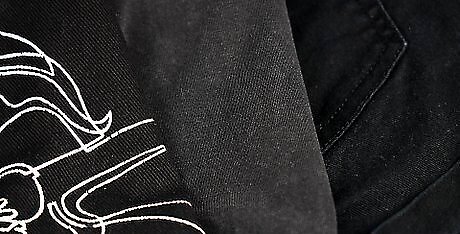
Whenever possible, wash black clothes with other black or dark garments. Dye tends to run during the washing cycle, but if there are no lighter garments to soak up the dark dyes, those dyes will reabsorb into the black clothes they came from. Along with this, try separating clothes according to weight. Doing so can protect the weave and color of more delicate black garments.
Turn your clothes inside out before washing.
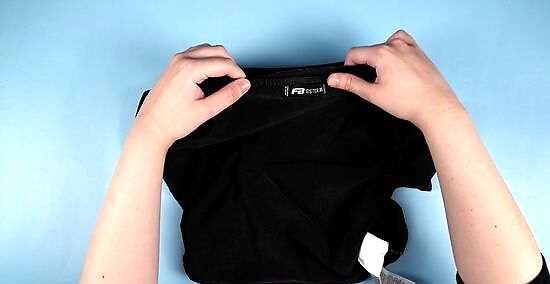
Dye on the outside of a garment fades faster than the inside. In other words, the fabric's surface directly exposed to the washing cycle will receive the most wear. As a result, the dye will fade first on the surface facing out during the laundry. Preserve the outside of black clothing by turning each garment inside out before you wash it. Black color fades due to friction in the wash when clothes rub against each other. More precisely, friction causes the fibers to break. Since the fabric's surface is disturbed, the human eye sees less color, even when no dye has been lost. Reduce the amount of abrasion and friction your clothes experience even further by closing zippers and fastening any hooks.
Wash clothes with cold water.

Warm water encourages dye to loosen from the fibers and bleed. Because of this, bright colors and black clothes tend to fade faster when washed in warm temperatures. On the other hand, washing these garments in cold water can preserve the dye longer and prevent the fibers from breaking down. Use water ranging between 60 °F (16 °C) and 80 °F (27 °C) for the best results. Note that you may need to change your laundry habits in the winter. Freezing outdoor temperatures can cause the water temperature of your washing machine to drop below 40 °F (4 °C). Liquid detergents may not be entirely effective in these temperatures. If the temperature outdoors drops below 0 °F (−18 °C), consider using a warm water wash and a cold water rinse.
Run the shortest cycle your washing machine offers.

The less time your black clothes are in the wash, the less they’ll fade. Keep the wash cycle brief when washing black and/or like-colored clothing. This way, the clothes won’t rub together as long, and the fibers and dye won’t break as much. When in doubt, use a delicate or gentle wash cycle.
Use a detergent made for dark fabrics.
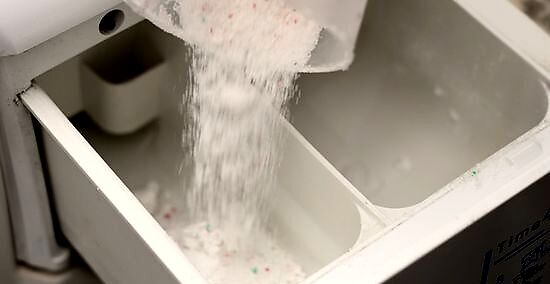
Detergents formulated for dark garments help hold dye in place. When you use these products, the dye is less likely to run, and the clothes are less likely to fade. Follow the instructions on the product for the best results. If you don’t have a detergent labeled for dark colors, consider using one formulated for cold water loads. These detergents can partially neutralize the chlorine in tap water, which is important since chlorine bleaches and lightens black clothes. Liquid detergents are better for washing black garments than powder detergent, as the particles in powder detergent can leave behind a residue and cause premature fading. Note that detergents don’t necessarily contribute to fading, even though some help prevent it more than others.
Air-dry black garments.

Heat can make black clothes fade faster. Avoid using the dryer as much as possible to keep your black garments from fading prematurely. Instead, hang the clothes to dry naturally. Avoid putting black clothes directly in the sun to dry, as the sun can act as a natural bleach and cause the fabric to fade. If you must use the dryer, avoid using dryer sheets, as this can contribute to fading dye.
Add vinegar to the rinse cycle.
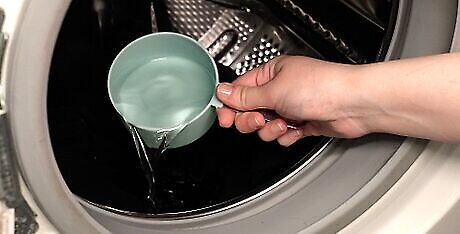
Vinegar can help preserve and soften clothing. When washing black or dark colored garments, add 1 c (240 mL) of white distilled vinegar to the washing machine basin. This simple trick can help set colors and strip fabric of detergent residue. The vinegar should evaporate during the rinse cycle, so usually, no smell is left behind. If a smell does linger, however, air drying the clothes should get rid of it. Avoid adding the vinegar to the detergent slot of your machine, as this may damage your washing machine.
Pour salt over your black clothes.
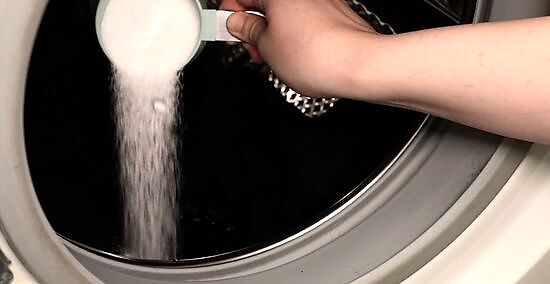
Salt can help prevent color dyes from bleeding. Add ⁄2 c (120 mL) of table salt to the wash cycle alongside your black clothes in the main tub of the washing machine. Believe it or not, salt can be extremely helpful for new and old black clothing, helping restore color and extract stubborn stain or residue. While salt can help prevent colors from bleeding, its abrasiveness can also damage garment fibers. Because of this, use this method sparingly.
Shake baking soda into the washer.
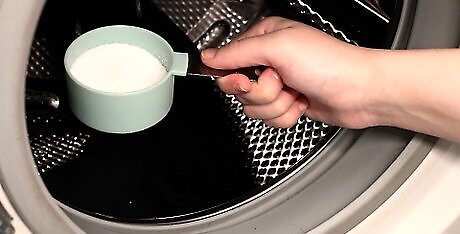
Baking soda can help brighten faded black garments. Sprinkle ⁄2 c (120 mL) of baking soda into the washing machine tub after you fill it with black clothes. The baking soda acts as a natural disinfectant and preserver, keeping your black garments clean and dark. Wash the load of laundry as you normally would after adding the baking soda. Baking soda is commonly used to help brighten whites as a form of non-chlorine bleach. As a non-chlorine bleach, however, it can also brighten other colors, including black. Don't add both vinegar and baking soda to the same load, because they cancel each other’s cleansing and restorative properties out.
Wash your clothes with coffee or black tea.
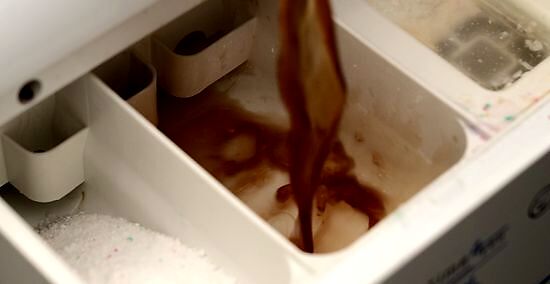
Coffee and black tea are both natural dyes that can restore black garments. Brew 2 c (470 mL) of coffee or black tea. Then, add your chosen liquid directly to the rinse cycle after your black clothes have already gone through the washing cycle. Although coffee and tea are traditionally used to dye light fabrics, they can also strengthen the overall hue of a dark garment.

















Comments
0 comment